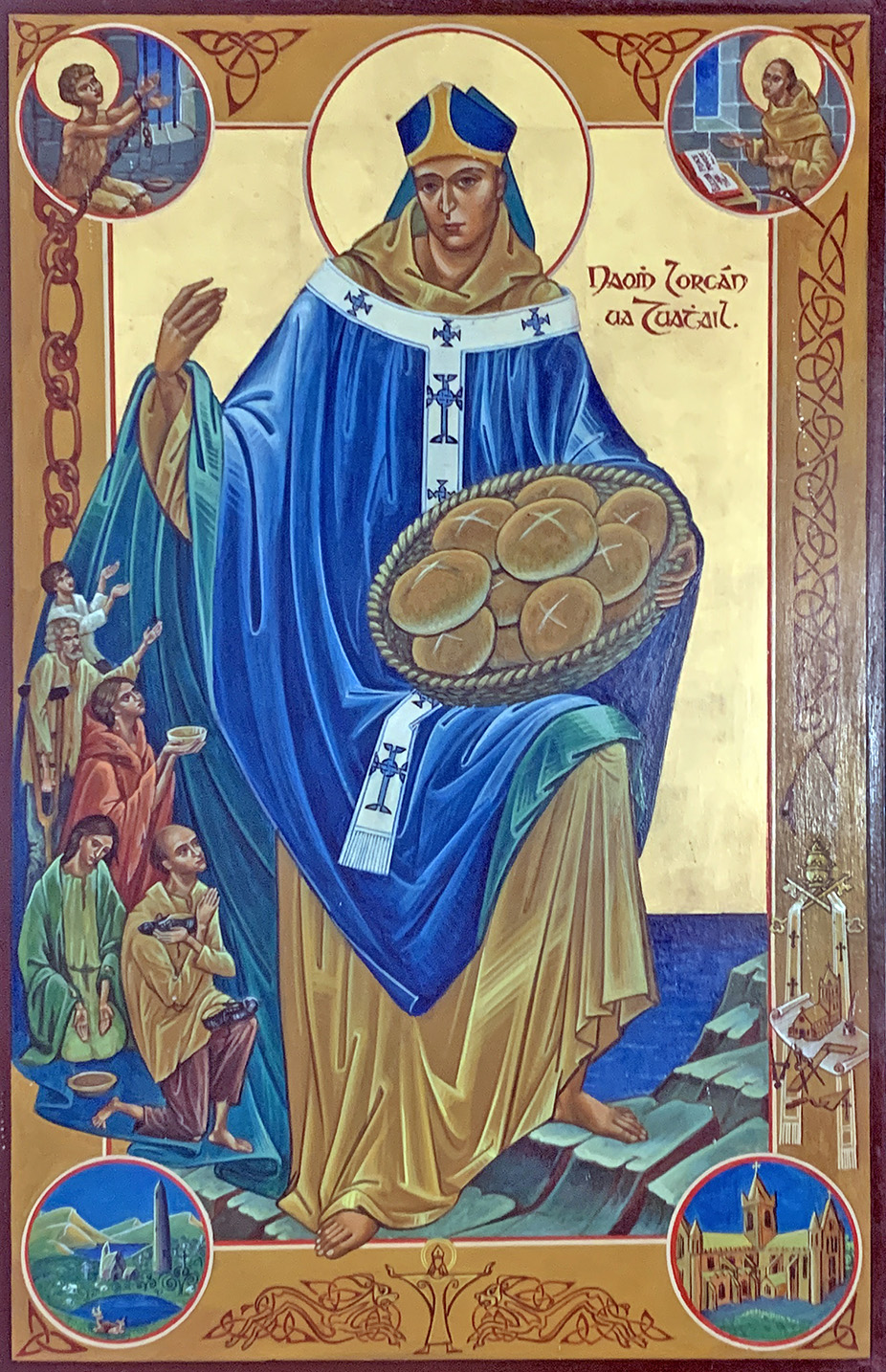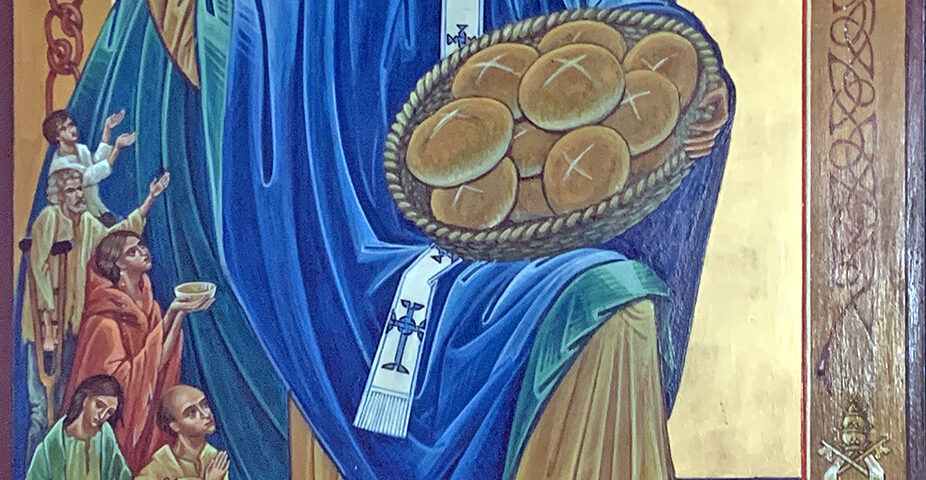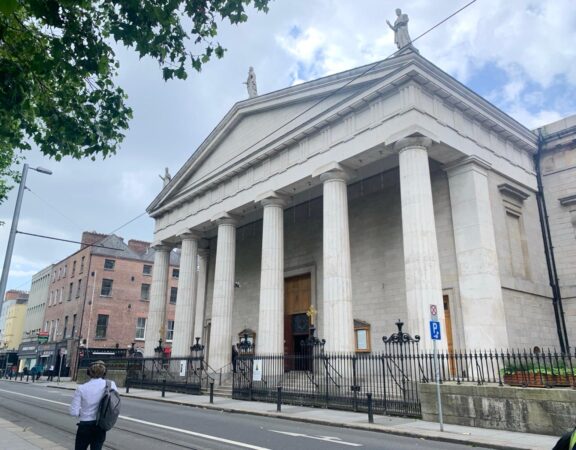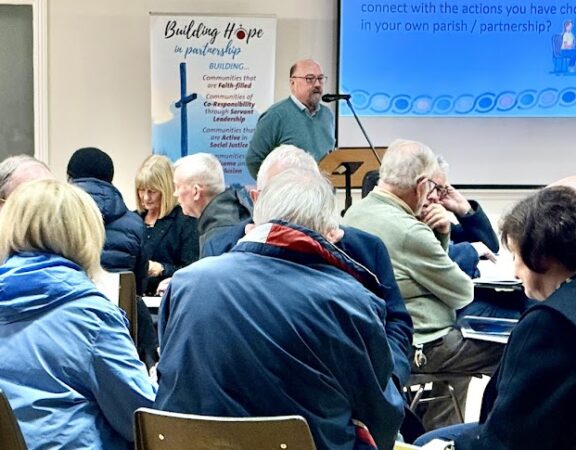Feast of St Laurence O’Toole, Patron of the Archdiocese of Dublin
Monday, November 14, 2022
Homily of Archbishop Dermot Farrell at Mass in St Mary’s Pro-Cathedral
In the quest to seek and find God in all things, there is always an area of uncertainty. Indeed, there must be. If a person says that they have met God with total certainty, and is not touched by a margin of uncertainty, then this is not good… If one has the answers to all the questions – that is the proof that God is not with them!” (Antonio Spadaro SJ, “A Big Heart Open to God: An interview with Pope Francis,” America, 30 September 2013: 30).
We always have to leave room for the Lord rather than for our own certainties. In a world where there is so much self-absorption, it is a significant challenge to bear witness to God’s power working in and among us, and drawing us forward. Of course, we have to look at our resources before building a tower or engaging in a battle. After all the gospel recommends such a stance (see Luke 14:28). In this, the challenge is to be open to the promptings of the Holy Spirt who is the one who guides us to where God wants us to be, and not to where our own ideas and personal tastes are leading us. If we do not allow ourselves to be found by God, we will not come to know the living God.
Coming to know the living God is a journey of two strands: it is our allowing ourselves be found by God and allowing us to find each other – to walk with each other. Understandably, the renewal of Church life in the 60 years since the Second Vatican Council could be described as a vision-inspired renewal. Something remarkable happened during the years of the Council: with a new clarity, the Church saw where God was calling it in a new time. After the cultural and political drama of the late 18th and 19th centuries, and the trauma of the 20th – with two world wars and innumerable revolutions and nationalist conflicts, the time was somehow ripe for a deep listening to what the Spirit was saying to the churches (see Rev 3:22).
The renewal that began with the Council now enters a new phase: the whole church – all the baptised – are called to come to grips with what the Spirit is saying to the whole Church, and not just those involved in ministry and leadership. The expansion of the Synod makes the Synodal Pathway resemble a council more than a synod, a kind of Vatican III which will attempt to put flesh on the bones of the Vatican Council’s understanding of the church as People of God. You can see how – to cite Pope Francis – “the Council was born with the question, ‘how can we speak of Jesus to the women and men of today?” He points out that, “one would not understand the Council, nor the current Synodal Pathway, if evangelisation were not placed at the centre of everything.” (Preface for Giovanni XXIII. Il Vaticano II. Un Concilio per il Mondo, by Ettore Malnati and Marco Roncalli, [Azzano San Paolo: Bolis Edizioni, 2022]). The call is to be a missionary disciples walking together along the way which is Jesus himself. The engagement of the whole Church in synodal process brings the Council forward, brings it to a new level, as it were.
It is important that we understand what is happening. It is vital that we gain a sense of where the Spirit is calling the Church. The Gospel of today’s Mass gives us a lens. Luke tells of the Transfiguration just before Jesus and his disciples set out for Jerusalem. It is while Jesus is at prayer that Jesus’ glory is revealed. There is a pause, and the disciples are given a glimpse of his deeper identity. The appearance of his face changes and Elijah – the great saviour figure, and Moses – the greatest prophet – also appear in glory, and speaking with Jesus. Peter finds this wonderful: “it is good that we are here,” and wants to make three booths. He wants to remain on the mountain. But the vision comes to an end, and Jesus and the disciples come down from the mountain. Like Moses and Elijah before him – who had to come down from Horeb and continue their mission, Jesus too has to come down from the mountain, and continue his mission: he has to continue his journey to Jerusalem, to the cross, and to the resurrection.
The vision of Christ in glory is real, but it is not all of reality. Jesus and the disciples have to come down, in order to engage with life as it is, and that involves the Journey to Jerusalem, to the cross. As one laywoman in our Diocese put it, “the mountain top is only ever a temporary respite and nourishment; real life is down on the ground, messy and painful. But the experience of the mountain reminds us of what is possible.” Real life is on the ground: messy and painful, and at times, very dark, as is brought home to us in these days. We may not run from the darkness. People’s hurt is real; their pain is genuine. To deny any of this, is not only an injustice to those who have been hurt; it is a further betrayal of Christ, and of our responsibility to protect the vulnerable, to stand with them, and to live the gospel’s deepest call. The experience of the mountain puts before us who we are, and where we are going, but the journey itself can only take place in life lived day-in-day-out.
So it is with the Council, and the journey of the Church in which we now are. For a long while we were like Peter, saying to the Lord and to each other, “it is good that we are here.” And it was. The Second Vatican Council was a wonderful moment. However, the brightness and the hope of the vision – for all its reality – must not blind us to the necessity of the journey: “real life is on the ground – often messy and painful.”
We celebrate the Feast of Laurence O’Toole, Patron of our diocese. Did his calling to be Bishop of Dublin not bring him for the security of his monastic life into the rough and tumble of leading a diocese at a time when it was changing profoundly and transforming itself. Not only did he to defend his city and people against the violence of the Norman invaders, but also built many churches throughout the diocese. It is no different today.
Let us not be under any illusions, there are risks in this journey together in the light of the Council. One of the risks is making the Church, both as institution and fellowship, the chief focus of the Synodal Pathway. Of course, there must be an openness that a different Church rather than another church will emerge under the guidance of the Holy Spirit. But the Synod(s) will be a success only if we put the focus properly where it belongs. This has to be on the Gospel: the person and message of Jesus, the events of his death and resurrection and outpouring of the Spirit, the life of discipleship.
In the Ireland of today, there is a credibility gap – not just that the church has lost credibility – at least as institution, but the gospel itself lacks credibility for many of our contemporaries. A feature of this credibility gap is the failure to get across even the fundamentals about the faith, independently of any conviction. To ask, “what happened for us in his death and resurrection” – the centre of our faith – is generally met with incomprehension.
There is a case to be made for a launch of another evangelisation in Ireland. Such an initiative would have to make room for questions as pivotal as the possibility of God actually being able to share his very being with us. Such an initiative could not afford to ignore evolution or ecology, or “nature as a grace-endowed reality, charged with the grandeur of God, a book to be read” – a veritable sacrament of the Creator (see Dermot A. Lane, Nature Praising God [Dublin: Messenger Publications, 2022], 105).
Finding new ways of talking about the gospel opens the possibility of exploring fruitfully how the Church – the community of the faithful – might realistically have that eloquence of which Christ spoke in yesterday’s Gospel (see Luke 21:15). In this way, the many issues which have come up in the Synodal Pathway earlier this year can be addressed creatively, honestly, and as an expression of the lives we actually live. Only in such a way will our response possess the credibility that makes a difference. There are no ready-made solutions. This is something we have to work out for ourselves. Nothing else will make any real difference.
May the Holy Spirit open our hearts to be inspired by the example of St Laurence O’Toole and keep before us the things that endure – the things of heaven – amid all the changes of this world.
Mary, Mother of the Church, pray for us.
St Laurence O’Toole, pray for us
St Kevin, pray for us.
+Dermot Farrell,
Archbishop of Dublin









